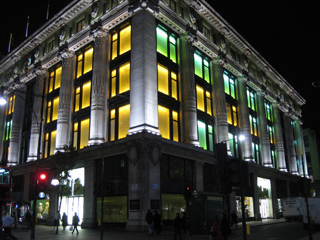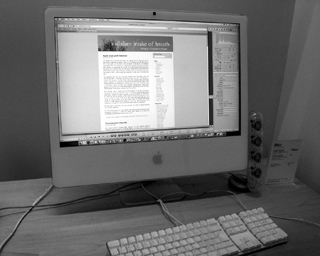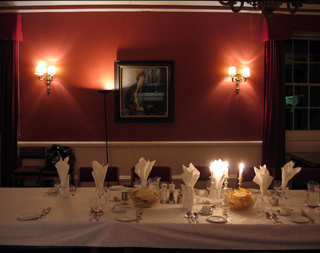Background
In the contest for the Senate in the 2006 midterm elections, eight races stand out as unusually important: (incumbent in italics)
- Pennsylvania: Rick Santorum (R) v. Bob Casey
- New Jersey: Bob Menendez (D) v. Tom Kean
- Montana: Conrad Burns (R) v. Jon Tester
- Virginia: George Allen (R) v. James Webb
- Ohio: Mike DeWine (R) v. Sherrod Brown
- Tennessee: Bob Corker v. Harold Ford
- Missouri: Jim Talent (R) v. Claire McCaskill
- Rhode Island: Lincoln Chafee (R) v. Sheldon Whitehouse
The first is a likely Republican loss, while it will be a fight for the Democrats to hold the second. As of the final polls before the election, the remaining six races are up in the air. To win a majority, Democrats need a swing of six seats.
I have written previously about the importance of the Senate in this race.
Breaking news
As of 2:30am, the Daily Kos (a partisan Democrat site) is reporting that the Democrats have gained three seats in the Senate. They need six for a majority.
More cautiously, The New York Times is only showing that they have certainly taken one of the six most contested seats: New Jersey.
Pollster.com is showing 49 Senate seats going Republican, 47 going Democratic, and four still up in the air. In the event of a tie in the Senate, the Vice-President gets to cast the deciding vote.
[Update: 2:50am] The New York Times is now reporting Democratic victories in the Pennsylvania and Ohio Senate races as well. Either Democrat Lamont or Independent Lieberman is basically certain to win Connecticut. For those who haven’t been following the news, Joe Lieberman lost the Democratic primary, largely due to his support for the Iraq war and the perception that he is overly close to the Bush administration.
[Update: 3:15am] The NYT and Daily Kos now agree that the Democrats have picked up Ohio, Pennsylvania, and Rhode Island. They also held seats in Maryland, Michigan, Minnesota, and New Jersey. It also seems that Ned Lamont has conceded to Joe Lieberman in Connecticut.
[Update: 3:40am] Up by three, with four still in play and Virginia looking like the Republicans will hold it, I am going to take another shot at going to sleep. The Republican candidate is leading by 5% in Tennessee, with 66% reporting. In Virginia, they are leading by 1%, with 94% reporting. In Missouri, they are leading by 10%, with 24% reporting. There are still no reports from Montana. Given that the Democrats would need to win all but one of these races, things are not looking terribly good, as far as their chances of a Senatorial majority go.
Election nights have certainly become a lot more exciting in the past few years.
[Update: 8:00am] Well, there you have it. The smart money was on a victory in the House and a narrow failure to win a majority in the Senate, just as most friends who I polled informally yesterday guessed. The Republicans took both Montana and Virginia, as listed above in my collection of crucial races.
Given the circumstances, I would not say that this is an impressive showing for the Democrats. They clearly need to become a lot more coherent and well organized before 2008. That said, I would say that the real priority for the American electoral system is to fix the many problems with electronic voting systems.
I wonder how this new Congressional balance will affect government over the next two years. That is something to ponder during my upcoming coach ride to London.
[Update: 9 November 2006] It seems that the race still isn’t over. More commentary as it emerges. The Democrats have taken Montana, with Virginia still up in the air.
[Update: 12:15pm 9 November 2006] It seems that Virginia has gone to the Democrats as well. That gives them a majority in the Senate. The moral of the story: don’t call things too early.




